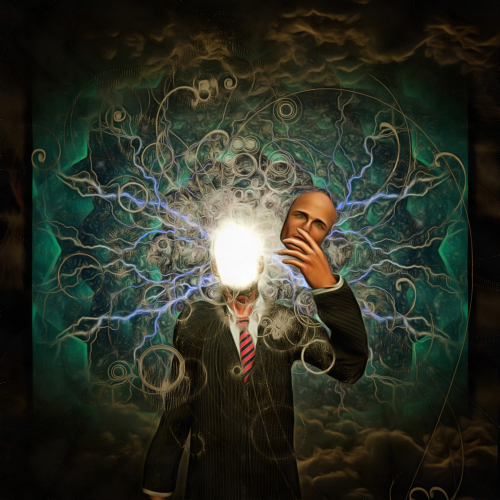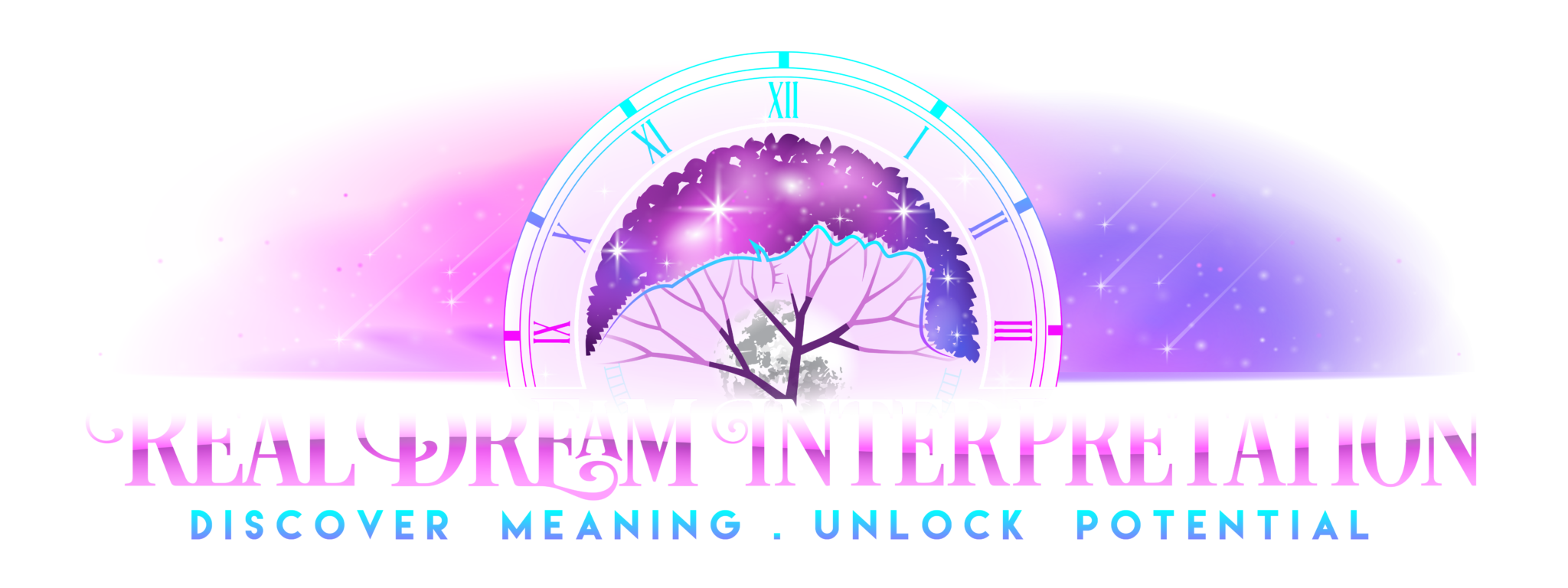This introduction briefly answers what are dreams and what your dreams are telling you. If you are interested, you can continue reading the full post afterward.
Table of Contents - Jump to Section
What are Dreams: A Brief Summary
 In the framework of Jungian psychology, dreams transcend simple reenactments of daily stressors or whimsical fantasies. Dreams are essential messages from the unconscious, rich in symbols and metaphors strategically designed to bring unconscious elements of the psyche into conscious recognition. This aspect is particularly crucial.
In the framework of Jungian psychology, dreams transcend simple reenactments of daily stressors or whimsical fantasies. Dreams are essential messages from the unconscious, rich in symbols and metaphors strategically designed to bring unconscious elements of the psyche into conscious recognition. This aspect is particularly crucial.
Dreams creatively interact with our individual and collective anxieties, ambitions, and inner conflicts through a form of symbolic representation. They orchestrate narratives exposing uncharted, ignored, or forgotten dimensions of our inner existence, thereby illuminating avenues for personal insight and development.
Contrary to appearances, the vibrant world of dreams is not disorderly; it adheres to a narrative form akin to that of a play, encompassing specific stages—exposition, development, culmination, and lysis—a pattern frequently emphasized by Jung. This perspective doesn’t diminish the complexity of dreams; rather, it equips us with a narrative framework, assisting us in traversing their elaborate mosaic of interpretations.
Nonetheless, the deciphering of these dreams is a subtle craft. It employs ‘cluster thinking,’ prompting us to perceive dream components not as detached figures but as linked fragments within a sophisticated web of psychological signals that are distinctly personal. The interpretation process doesn’t point to a singular answer but demands a fusion of symbols and sentiments to grasp a holistic view of our inner, often unconscious, individual struggles and stories.
Engagement with our dreams transcends mere analysis; it becomes a journey of transformation. It represents a continuous dialogue with our unconscious being, an integral progression towards Jung’s concept of individuation. Through this reflective involvement, our approach is not solely analytical; it’s evolutionary, acknowledging the profoundness of our psyche in its entire, universally human intricacy.
What are Dreams?
 In the realm of Jungian psychology, dreams are far more than mere echoes of daily life or simplified narratives to be decoded. They are dynamic, creative expressions from the deepest layers of our psyche, manifesting in ways that often bypass our conscious mind’s immediate understanding. This creativity isn’t random or purposeless. It serves as a bridge, connecting our conscious self with the vast, unexplored territories of our unconscious.
In the realm of Jungian psychology, dreams are far more than mere echoes of daily life or simplified narratives to be decoded. They are dynamic, creative expressions from the deepest layers of our psyche, manifesting in ways that often bypass our conscious mind’s immediate understanding. This creativity isn’t random or purposeless. It serves as a bridge, connecting our conscious self with the vast, unexplored territories of our unconscious.
Dreams weave a rich tapestry of symbols, myths, and archetypes, each element chosen with exquisite care by the unconscious to communicate specific aspects of our inner world. These narratives unfold organically, beyond the reach of our ego’s censorship, creating spaces where suppressed fears, desires, and conflicts can be freely expressed. This process often brings forth aspects of our personality that are new, neglected, or hitherto unknown, revealing potential paths for personal growth or transformation.
The dream realm thrives on this inherent creativity, constructing boundless landscapes where the normal rules of logic and physics don’t apply. Here, in this infinite canvas, the psyche articulates itself through a complex, non-verbal language, composing scenarios and stories that resonate with the very core of our being. These are not just passive, nocturnal hallucinations but active, meaningful explorations of our deepest identity, each dream a creative expedition into the far reaches of the self.
By engaging with the creative essence of our dreams, we open ourselves to profound revelations and innovative insights, embracing an intrinsic human experience that redefines our understanding of reality, self-awareness, and personal evolution. It’s within this creative engagement that we discover dreams are not a retreat from reality but a gateway to it, providing clarity and perspective that influence every facet of our waking lives.
Is there a consistent interpretation or meaning behind dreams?
 Interpreting dreams is an intimate, nuanced journey into our psyche’s deeper layers, and here’s where Jung’s concept of ‘cluster thinking’ becomes invaluable. Dreams don’t translate into a single, clear-cut message; instead, they present clusters of symbols, emotions, and archetypal patterns that need to be understood as a collective, not in isolation.
Interpreting dreams is an intimate, nuanced journey into our psyche’s deeper layers, and here’s where Jung’s concept of ‘cluster thinking’ becomes invaluable. Dreams don’t translate into a single, clear-cut message; instead, they present clusters of symbols, emotions, and archetypal patterns that need to be understood as a collective, not in isolation.
Cluster thinking invites us to explore these symbols and motifs without forcing them into a linear narrative or reducing them to one-dimensional meanings. This approach respects the dream’s multifaceted nature, allowing for a holistic understanding that integrates both the personal and the collective unconscious dimensions. We piece together these clusters, much like a mosaic, forming a broader, more nuanced picture of our inner world and life situation.
So, while there’s no uniform interpretation of dreams, there’s a rich, transformative process of understanding that unfolds as we engage with them. This process isn’t just about uncovering hidden messages but about facilitating a dialogue between our conscious and unconscious realms. It’s through this dialogue, this dance with the unconscious, that we embark on the path of individuation, nurturing our psyche’s growth and evolution. In this journey, dreams are our companions, guiding us toward self-realization and a deeper engagement with the very essence of our humanity.
The Dramatic Structure of Dreams: Insights from Jung
 Carl Jung gave us profound insights into the nature of dreams and their connection to the human psyche.
Carl Jung gave us profound insights into the nature of dreams and their connection to the human psyche.
Many dreams show a specific structure, akin to that of a drama, which unfolds in distinct phases. Understanding these phases can significantly enhance our interpretation of dreams, shedding light on their intricate narratives and what they reveal about our inner lives.
- Exposition: This initial phase sets the scene. It’s where the dreamer finds themselves in a specific place with certain individuals, establishing the ‘where,’ ‘who,’ and ‘what’ of the dream scenario. Whether it’s an avenue, a building, or a park, this stage introduces the environment and the characters, grounding the dream in a tangible context that mirrors the beginning of a play or story.
- Development: Here, the plot thickens. This phase introduces a complication or a source of tension, creating an element of uncertainty and anticipation. It could involve an erratic car drive, a secretive whisper, or any event that disrupts the initial scenario. This development builds the narrative, guiding the emotional tone and creating a sense of momentum and direction.
- Culmination: This is the turning point, where something decisive occurs or a significant change takes place. It’s the moment of intense emotion or action that the previous scenes have been building towards. The dreamer might find themselves in a completely new role or witness something unexpected or shocking. This phase is crucial as it often reflects the core emotional or psychological issue that the dream is highlighting.
- Lysis: The final phase presents the outcome, resolution, or the ‘message’ of the dream. It’s where the tension is resolved, or the situation concludes, often leaving the dreamer with a sense of completion, insight, or perplexity. In some dreams, this phase might be absent, which, as Jung noted, poses a unique interpretive challenge.
What are your dreams telling you?
By recognizing and understanding this structural framework within our dreams, we add another layer to our interpretative efforts. This doesn’t confine the dream’s meaning but rather helps us navigate its narrative flow, enriching our comprehension of the symbolic and emotional language of our unconscious. It reaffirms that dreams, much like stories, are a fundamental part of the human experience. They reflect unconscious fears, desires, conflicts, and aspirations in the symbolic language which resonate deeply with the collective unconscious. Through this lens, dream work is not just personal analysis; it’s a journey into the shared narratives that define human psyche.
Dreams as Inner Exploration
 What your dreams are telling you about yourself might surprise you. The world of dreams is a mysterious and captivating one, often leaving us with more questions than answers. Yet, the connection between dreams and reality is undeniable, Dreams serve as profoundly intricate mirror into our inner selves.
What your dreams are telling you about yourself might surprise you. The world of dreams is a mysterious and captivating one, often leaving us with more questions than answers. Yet, the connection between dreams and reality is undeniable, Dreams serve as profoundly intricate mirror into our inner selves.
Dreams are not mere products of our unconscious psyche; they are gateways to self-discovery. In dreams, we transcend ego and personality development, embarking on a profound odyssey into our inner selves. Every dream is a puzzle, a cryptic narrative that can unlock hidden aspects of our personality and consciousness. This journey of self-discovery alters our interactions with external reality, challenging preconceptions and opening new vistas of understanding.
Consider the dreamer who consistently dreams of flying. On the surface, it may seem like a simple flight of fancy, but delve deeper. It could reveal a yearning for liberation or escape from life’s constraints. By exploring the meaning of such dreams, the dreamer may uncover a new vitality. For example, a woman in her mid-thirties suffered the heavy burdens of an obsessive-compulsion neuroses, a persistent depressive disorder, and a co-dependency with her partner expressed as a sex addiction. All of these were connected to childhood neglect and abuse.
She had the following dream:
I am pushing a very heavy cart through a city. It has all of my things in it, things I have long since discarded, but still carry with me everywhere I go. I am weak and exhausted, so I can hardly push this thing any longer. No one seems to notice. Finally, an old woman walks up to me and says, “Honey, why are you pushing this cart around? Can’t you see it holds you back? Just leave it behind and be free.
I let go of the cart and already feel so much lighter. Then I begin to run so fast that my feet come off the ground a bit. I am weeping and laughing at the same time.
The dreamer was certainly up for the situation at hand. I could see that she had a brilliant personality with far more potential than she had realized. The Wise Woman told her it was time to leave behind the hindering burdens of her past which she presently still carted. Only then could she be free to fly. The old woman offered the dreamer’s libido a potential new gradient. The question is whether she will lay down the burden and allow herself to flow into that new channel.
Dreams Reflect the Inner World
Dreams are introspective by nature, revolving around the dreamer’s inner world and psyche. They do not merely mirror external events or the thoughts and feelings of others. Instead, they beckon us to look inward, to decipher the symbolic messages that our unconscious psyche weaves. These messages offer profound insights into our unconscious reality. They reveal unconscious thoughts, emotions, and the intricate tapestry of underlying issues that shape our daily lives.
 Dream analysis is akin to embarking on an archeological dig within our own minds. Each dream is a layer waiting to be unearthed, revealing hidden treasures of wisdom and self-awareness. This inner excavation can illuminate unresolved conflicts, unmet desires, and even untapped potential. As unravel our dreams, we gain a clearer perspective on our waking reality and the choices we make.
Dream analysis is akin to embarking on an archeological dig within our own minds. Each dream is a layer waiting to be unearthed, revealing hidden treasures of wisdom and self-awareness. This inner excavation can illuminate unresolved conflicts, unmet desires, and even untapped potential. As unravel our dreams, we gain a clearer perspective on our waking reality and the choices we make.
Projection in Dreams
One of the most intriguing aspects of dreams is the phenomenon of projection. In dreams, we often project our own qualities, both positive and negative, onto other people or elements in the dream. When it becomes conscious, this process serves as a looking glass into our unconscious desires, fears, and unresolved issues.
For instance, a dream in which a person confronts a killing, persecutory figure. It might symbolize their struggle with inner demons or unresolved conflicts. By recognizing projections, we gain insight into our relationships, confront our fears, and foster healthier connections with others in reality.
Dreams as Compensation
Dreams are not random fantasies; they are a form of compensation, seeking to balance the scales of our psyche. They address imbalances between the conscious and unconscious mind, providing insights that may be overlooked. Compensation manifests in various ways, such as highlighting the need to balance introverted tendencies with extraversion.
Consider the introverted individual who often dreams of vibrant social gatherings. These dreams may serve as a reminder to step out of their comfort zone and embrace social opportunities. By addressing these issues in our dreams, we can strive for greater equilibrium and well-being in our daily reality.
Dreams as Revealing Truths
 Dreams have a remarkable capacity to reveal truths that our conscious mind might be hesitant to acknowledge. They communicate in symbols and metaphors, offering insights that can guide our decisions in the waking world. This aspect of dream interpretation can be particularly valuable when navigating complex life situations.
Dreams have a remarkable capacity to reveal truths that our conscious mind might be hesitant to acknowledge. They communicate in symbols and metaphors, offering insights that can guide our decisions in the waking world. This aspect of dream interpretation can be particularly valuable when navigating complex life situations.
For example, a person in the midst of an unconscious career dilemma might dream of being lost in a maze while trying to get to work. The dream’s symbolism could indicate the need for guidance and a reevaluation of their path. By heeding the dream’s message, you can make more informed decisions, ultimately shaping your reality in a more authentic way.
Inner Family Dynamics in Dreams
For instance, let’s look what your dreams are telling you about your inner family. Family occupies a central place in our lives, both in dreams and reality. Dreams often feature family members and they can reveal the profound impact of familial relationships on our worldview and self-perception. Exploring these dreams prompts deep self-reflection and growth. This helps us understand how these relationships influence our thoughts and behaviors in the real world.
A dream of conflict with a sibling, for instance, might reflect unresolved tensions or competition in the waking world. By delving into these familial dream scenarios, individuals can gain insight into their own emotional landscapes. From there you can explore avenues for improving family dynamics in their reality.
Predictive Elements in Dreams
 Dreams can symbolically hint at potential outcomes or issues that require attention. Carl Jung provided examples of dreams that seemed to foreshadow future events, showcasing the intriguing potential prognostic nature of dreams.
Dreams can symbolically hint at potential outcomes or issues that require attention. Carl Jung provided examples of dreams that seemed to foreshadow future events, showcasing the intriguing potential prognostic nature of dreams.
For instance, a dream of falling might symbolize a forthcoming loss of control or stability. By interpreting such symbols, we can better prepare ourselves for the challenges or opportunities that lie ahead. Dreams serve as subtle navigational tools, guiding us through the labyrinth of life’s uncertainties.
Conclusion: What are your dreams telling you?
In summary, dreams are not fleeting fragments of our sleep but profound windows into our inner worlds. They offer insights, guidance, and even symbolic indicators of potential future developments. Each dream is a treasure trove of wisdom, waiting to be unlocked through introspection and interpretation. By paying attention to what your dreams are telling you, you enrich your understanding of yourself. Together we embark on a transformative journey toward greater self-awareness, paving the way for more intentional and fulfilling lives.
- Hidden Meaning in Dreams About Flying: A Jungian Analysis - December 17, 2023
- Dreams About Tsunamis:Title Waves of Transformation - October 30, 2023
- What your dreams are telling you about your life - October 27, 2023
Share this Post

